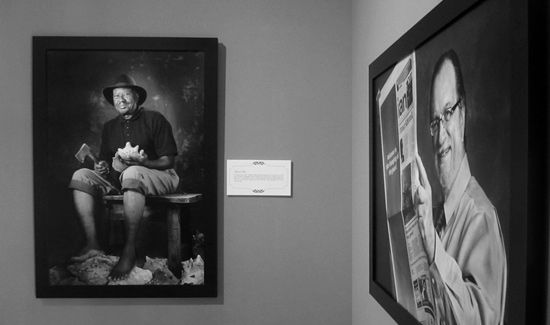I can only imagine that the idea of Independence was a grand and novel notion during the late 60s and early 70s, one that was eventually able to draw a mass of support as an obvious advantage and natural progression for the majority of indigenous people in the Bahamas. Since that time, almost 40 years now, the collective stride of the Bahamas “Forward, Upward, Onward, Together” has certainly been hobbled and weak.
Of course, the genesis of our problem is that we are a nation without a vision, and no common agreement or understanding that serves to galvanise the populace. Those that write history will be able to point out in no uncertain terms that the “tough times” of this recession unveiled some severe flaws in the foundation of this country; in economic terms, socially and more notably will be a realisation that poor leadership has had a greater impact on the lives of the Bahamian people than any external factors we have ever identified.
As a nation we should make no mistake about it, our country, its constitution, the rules of governance and common customs are set up based on the assumption that there will be great men who rise up from among us and represent the will of the people. These men should be proactive, hard-working, exude integrity, be reasonably intelligent, innovative and most of all should be seeking to promote an atmosphere of self-discipline, industry, loyalty, unity and an abiding respect for Christian values and the Rule of Law (verbatim from the preamble of the constitution).
As an aside, we should note that the scribes of the constitution went far out of their way to note that there should be a national commitment to a “respect for Christian values”, very distinct from the common perception of the Bahamas being a “Christian nation” to be governed by some or all interpretations of the Bible.
Very simply put, a man does not have to be a Christian to recognise the gravity of good that the promotion of the underlying values of Christianity brings to a society. As it relates to the truly democratic nature of our society, which is clearly what the Fathers of independence envisioned, the systems and processes of government and society should aim to make it so that each and every individual feels as close as possible to possessing the authority to influence the way the country is run.
One of the fundamental challenges in our country is that there remains a segment of people who believe that certain individuals, whether because of their position in society, wealth, formal education, colour, and/or social beliefs, are entitled to a greater authority over others. The real curse of the Bahamas has been that over the course of our history, we have profited almost exclusively off of God’s handiwork and through very little effort of our own.
Throughout our society, there remains only a scarce understanding of the tradeoff between “the sweat of our brow” and the resulting benefits, mostly because we have always been paid handsomely to stand around and watch outsiders enjoy our tropical paradise. The Bahamian people have been spoiled to the point that we do not understand how anything works anymore, nor do we care.
Our concern is simply to maintain a lifestyle that we have come to enjoy, by any means necessary, but as any man about town would be able to tell you, there always comes a point when the fast money slows up. The most critical fall-out of our way of life, is that today on average we are a severely undereducated, uninformed population which means two things: firstly we are unprepared to make our country a success in the rapidly “globalizing” 21st century and secondly our collective voice is too weak to stimulate government to make the crucial changes necessary to prepare us for the future.
The old adage “between a rock and a hard place” comes to mind. The severity of issues with crime, the economy, overpopulation, unemployment, rights and equality, etc., will continue to plague us because we continue to employ elementary thinking to advanced social challenges. Albert Einstein is quoted as saying “The significant problems we face today cannot be solved at the same level of thinking we were at when we created them”, a phenomenon that Bahamians seem willing to try and disprove until we reach a critical mass of turmoil and despair.
Based on our current trajectory, not accounting for radically innovative solutions beyond my comprehension, the Bahamas’ destiny will be restricted and determined by two factors. The first is that somehow within the existing framework we are able to elevate great men (and women of course) to lead us and to individually promote, agitate for, and change policies and practices that encourage all Bahamians in the spirit of Forward, Upward, Onward, Together.
Sadly, this is something that has not happened throughout our history and seems by design to not be desired by those who ascend to the positions of authority which, if it were not for the actual individuals who reside in them, would be considered esteemed.
The more likely scenario, whether it happens fast or slow, whether it is socially disruptive or not, is that the collective will of the people will subvert the status quo which harbours corruption, inequality, the desires of a few over the welfare of the many, and which has promoted the sense of dependence, inferiority and the lack of pride in being Bahamian which is at the heart of so many national ills.
History, both ancient and recent, would advise us all who are able to promote the dialogue that embraces the voices of all citizens and to do all within our control to influence the direction of our country, before the problems solve themselves in ways that most are not prepared to handle.
Wayne Wilson



